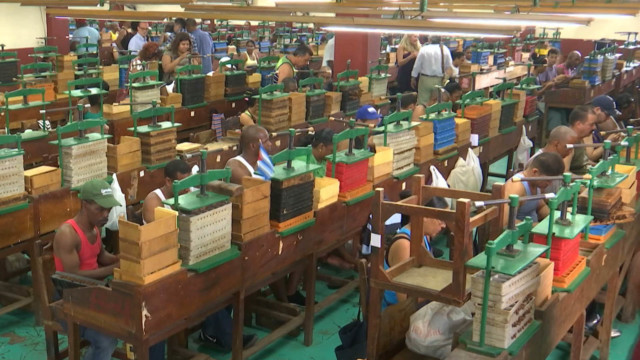Cuba is known for the quality of its tobacco leaves, but it’s the human hand which turns them into world-class cigars.
CGTN’s Michael Voss reports.

Jose Alvarez is a master cigar roller at the La Corona factory in Havana. Working on the bench beside him is his granddaughter Sheila. His son, wife and nephew are also professional cigar rollers.
“Cigar rolling needs to be a vocation. There’s a nine-month training course and the company likes to hire relatives of rollers and other cigar workers. It’s like being an artist. You have to have it in your blood,” Alvarez said.
Making cigars individually by hand is a skill which has changed little in Cuba since the first cigar factories opened in Havana almost 200 years ago.There are approximately 20 factories around the island employing about 1,000 rollers.
“They are very important. I mean these cigars are made only by human hands and tobacco and time. Without a good cigar roller, you can’t get a fine cigar. It’s a very difficult process. Other countries have good rollers, too, but Cuba is really the birthplace of the premium cigar. They do it so well here, it’s beautiful to watch,” David Savona of Cigar Aficionado Magazine said.
Basic salaries are the equivalent of about $20 a month, less than the cost of some of the cigars. Jose Alvarez is also the trade union leader and said there are now a range of productivity-based bonuses.
“The salary depends fundamentally on how much you produce. It also increases with experience and quality. The better you work the more you earn,” Alvarez said.
Each roller produces about 100 cigars a day. It’s a very repetitive job that demands an enormous amount of concentration.
To help people focus, some factories employ the age-old tradition of cigar readers. In the mornings, they read the newspaper out loud, in the afternoon books and magazines. Crime stories and romances are among the most popular.
 CGTN America
CGTN America

